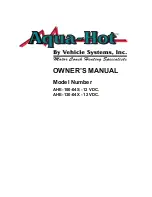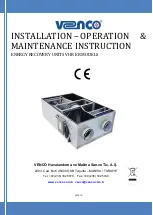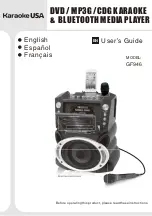
6
4-5. STARTING THE WELDING PROCESS:
The device must be set up on a flat and stable surface, a
work table is best suitable.
•
Insert cable of tool right straight into socket (3) turn
tightly and carefully by hand to the right to fasten
•
Insert plug of welding table and/or clamp or pliers into
socket (4)
•
Unscrew extruder die (15) from tool (18)
•
Loosen electrode (17), insert newly grinded wolfram
electrode (16) and fasten it (do it manually, do not use
a tool) Let electrodes extend past the extruder die by
about 5 mm (Fig. 3) (Only use original electrodes)
•
Screw on extruder die (do it manually, not with a tool)
•
Plug the optic unit into the fastening block located on
the device, or alternatively fasten it to the work table
using the accompanying table clamp
•
Plug the round plug for the shutter into the connection
socket (11) marked “Filter” located on the back of the
device and secure it with the nut.
•
To connect the microscope, plug in the round plug
and fasten it as like the optic unit above.
•
Attach the pressure controller to the protective gas
container after carefully reading the instructions (if
possible, use argon gas with a minimum of 99.8%,
e.g. “Argon 4.6”
•
Connect pressure tube, by using the quick
connectors, to the pressure controller and to the
gas connection (9) of housing backside
•
Open gas bottle valve and set the gas flow to
between 3-6 liters per minute -
maximum operating
pressure should be 10 bars!
•
Plug in main plug.
•
Set main switch (1) to ON – the device will perform a
self-test.
•
The green control light (6) will indicate that the device
is in operational status.
•
Use output regulator (2) to choose energy needed.
•
Start
welding
process.
•
Use eye protection
.
Please read the instructions on the connected eye protection devices such as the optic unit or microscope
shutter!
ATTENTION!
When welding with PUK 2, the welding base, the clamps and/or the pliers are live as soon as the mains master
switch is turned on. Make sure that these parts do not touch any electrically conductive or earthed parts such as
housing etc.
SECTION 5 – OPERATION
5-1. WELDING GUIDELINES
•
Place the work piece on the welding table
•
Make sure there is good contact between work piece
and table
•
Use a clamp or pliers if the work piece only has small
contact with the table
•
Use the electrode tip to touch the area you want to
weld until the welding is complete.
“without pressure or only with slight pressure!”
•
The welding process takes place automatically:
o
protective gas floats around welding spot
o
A signal tone indicates the arc
o
the arc sets off
o
protective gas supply stops
•
The welding process can be interrupted at any given
time by lifting the electrode away from the workpiece.
•
Use the switch (7) to select a quicker welding action.
•
Use the switch (8) to select between two different
impulse lengths. A longer impulse creates a larger
penetration depth and higher strength.
5-2. BASIC INFORMATION AND TIPS:
Important!
•
Always work with a sharp edge
electrode to get optimal results.
•
Always make sure that there is enough
contact between work piece and
welding table. In case of problems use a
clamp and/or pliers.
•
Never weld “free hand”. That is, always
support both hands on the base (work
table). Trembling hands will distort the
parameter of the device.
•
Use only very light pressure on the
electrode tip.
•
Weld only using low gas pressure! 3 to 4
litres per minute is often enough.

































